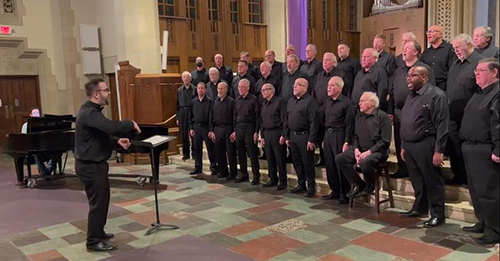by Daniel Hathaway
Today at Noon, organist Jonathan Moyer plays a free recital using both organs in University Circle’s Church of the Covenant: works by Nico Muhly and Samuel Scheidt on the 17th-century North German-style gallery organ, and 20th-century French pieces on the chancel instrument. You can hear the performance online.
And at 7:00 pm, The Singers’ Club of Cleveland, one of the longest continuing men’s choirs in the country, welcomes interested singers to a two-hour open rehearsal led by artistic director Don Verkuijlen at the Church of the Saviour in Cleveland Heights.
For details of upcoming events, visit our Concert Listings.
TODAY’S ALMANAC
Several sources claim that the clarinet was invented by German woodwind builder Johann Christoph Denner on this date in 1690 in Nürnberg. Well…Denner seems to have added a register key to the chalmeau, a single-reed instrument whose origins can be traced back to ancient times. In any case, clarinets entered the orchestra during the Classical period and such virtuosi as Anton Stadler mastered them and inspired two wonderful solo works by Mozart. A good time to revisit Mozart’s Clarinet Quintet performed by Franklin Cohen and his ChamberFest Cleveland colleagues here.
Speaking of Mozart, January 14, 1800 was the birthdate of the Austrian musicographer Ludwig Ritter von Köchel, who compiled the first comprehensive catalogue of the composer’s works, hence the “K” numbers that identify them.
Many composers kept their own lists of compositions, often assigning them Opus (“Work”) numbers if they thought them worthy of a position in their personal canon. We have four sets of catalogue numbers for Beethoven: his own Opus list (Nos. 1-135), then a 1955 list by Georg Kinsky and Hans Halm of “Works without Opus Numbers” (WoOo numbers 1-125), and a further list of works compiled by Willy Hess in the 1950s identified by Hess numbers. The final catalogue, compiled by Giovanni Biamonti in 1968, attempts a chronological listing of all of Beethoven’s works, Opus, WoO, and Hess numbers included. Otto Deutsch did a similar favor for Schubert, assigning his works “D” numbers.
Good trivia question: How many works did each of these composers leave to posterity? Mozart: at least 626 plus fragments. Beethoven: 849 according to Biamonti. Schubert: 993. Bach: more than 1,126. Numbers are approximate — some include lost works.
And looking forward to the celebrations this, it was on this day in 1979 that President Jimmy Carter proposed observing Martin Luther King Jr.’s birthday as a national holiday.




